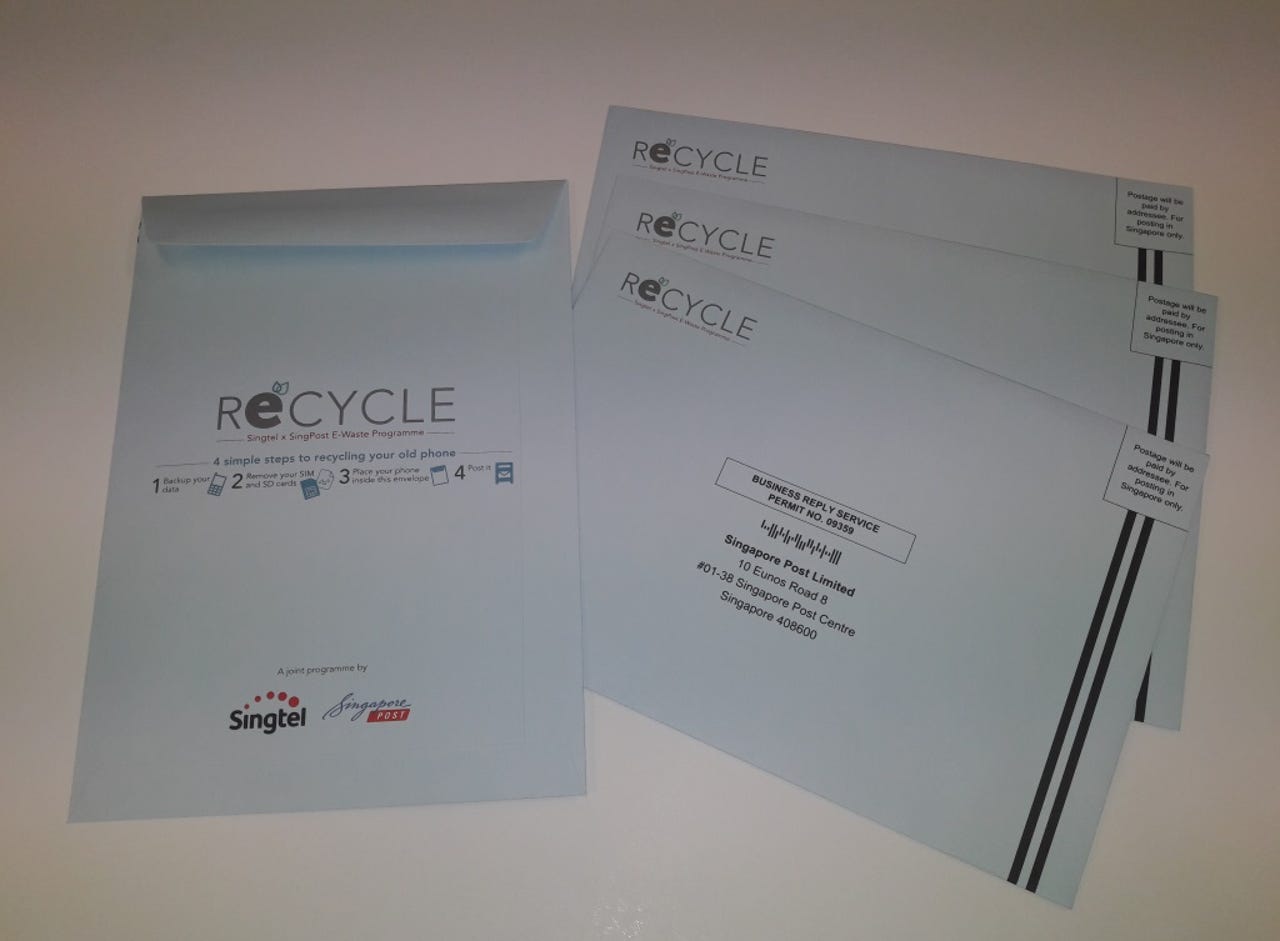Singapore e-waste programme lets consumers mail unwanted devices


Singtel and Singapore Post (SingPost) have launched a recycling scheme that lets consumers mail their unwanted electronic devices or dispose them in designated bins.
Launched in conjunction with World Environment Day, the e-waste recycling initiative aimed to encourage more to dispose of their electronic devices more thoughtfully.
Latest news on Asia
Citing figures from National Environment Agency, Singtel's vice president for group sustainability Andrew Buay said e-waste was one of the fastest growing categories of waste, with Singapore generating more than 60,000 tonnes of e-waste annually.
"Most e-waste is still finding its way into landfills, which pollutes the environment," Buay said, adding that the telco hoped its partnership with SingPost would offer greater convenience by providing more recycling options. "We hope this will encourage more people to recycle and think twice before disposing their electronic devices down the rubbish chutes."
Through the recycling programme, consumers could dispose their unwanted mobile and electronic devices in designated bins located at selected Singtel shops and exclusive retailers as well as post offices.
These locations, though, were limited to just six post offices, four retailers, and three Singtel shops.
Alternatively, consumers could pick up recycling envelopes from a wider network of eight Singtel stores, 58 retailers, and 57 post officers located across the city-state, and mail in their devices by dropping the envelopes in any post box.
Hong Kong and Singapore in 2015 produced the highest volume of e-waste in the East and Southeast Asian region, generating 21.7kg and 19.95kg, respectively, per capita, according to a January 2017 report by the United Nations University. The average e-waste generation per capita was 10kg across the region in 2015, revealed the study, which defined e-waste to encompass items of all types of electrical and electronic equipment that had been discarded without the intention of re-use.